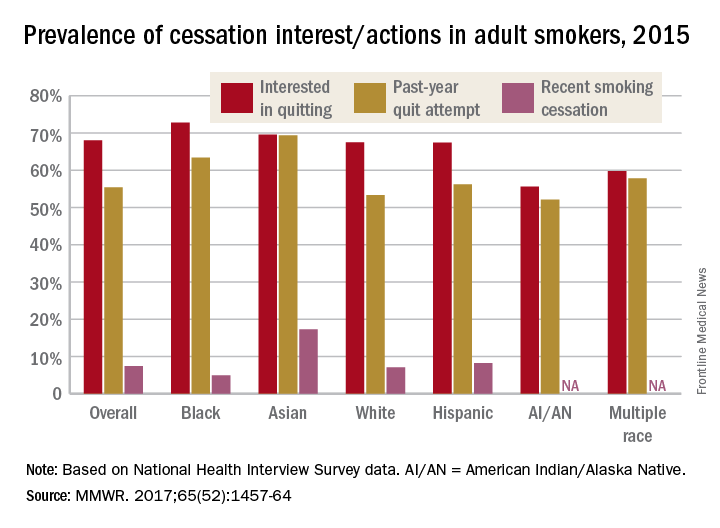Just over 55% of adult cigarette smokers made an attempt to quit in the past year, and 7.4% said that they recently quit, according to investigators from the Centers or Disease Control and Prevention.
Data from the 2015 National Health Interview Survey (NHIS) show that 68% of cigarette smokers were interested in quitting, with considerable variation seen according to race and ethnicity (MMWR. 2017;65[52]:1457-64).
In 2015, black smokers were the most likely to be interested in quitting (72.8%) but the least likely to have recently quit (4.9%). Asians were the next most likely to be interested in quitting (69.6%), and they were the most likely to have made an attempt to quit in the past year (69.4%) and to have recently quit (17.3%). Interest in quitting was almost equal for whites (67.5%) and Hispanics (67.4%), but 56.2% of Hispanic cigarette smokers attempted to quit, compared with 53.3% for whites, and 8.2% of Hispanics had recently quit, compared with 7.1% of whites, the CDC researchers said.American Indian/Alaska Native smokers were the least likely to be interested in quitting (55.6%) and to have attempted to quit (52.1%), but the sample size was too small to report a reliable quit rate. The amount of survey participants of multiple races was also too small to report a reliable quit rate. Among that group, 59.8% were interested in quitting and 57.8% had attempted to quit in the past year, the NHIS data showed.
The sizes of surveyed populations for individual races and ethnicities were not reported, but the total sample size for the 2015 NHIS was 33,672.


